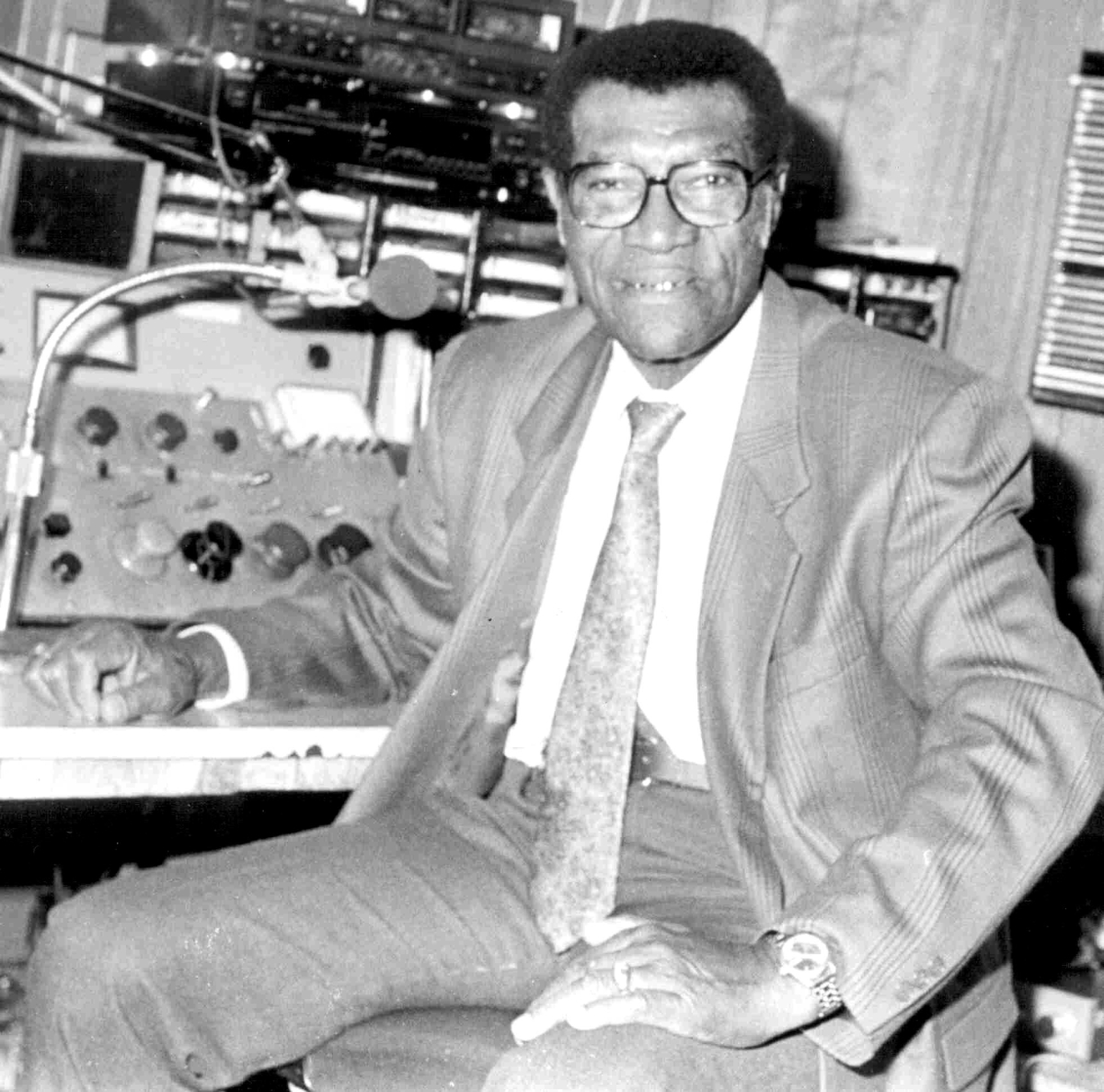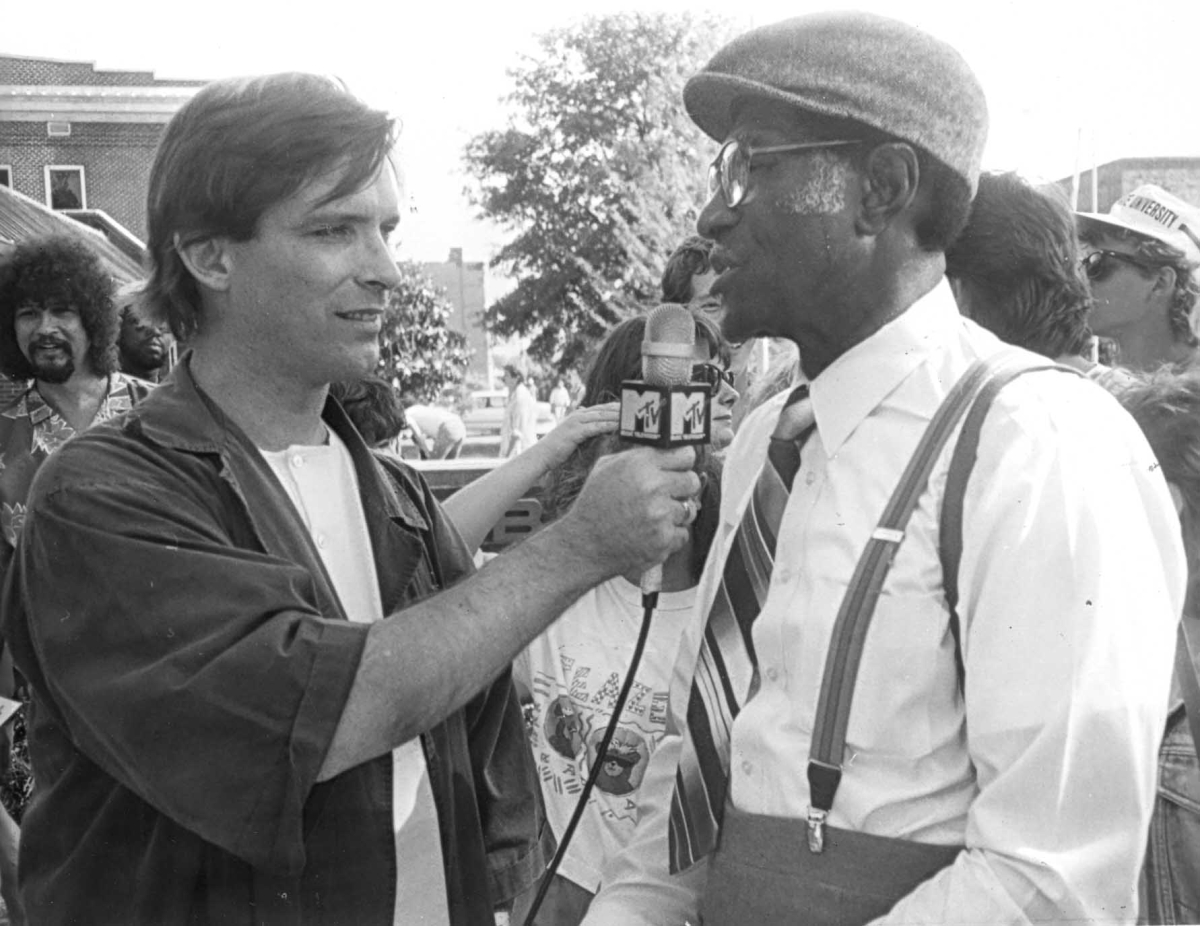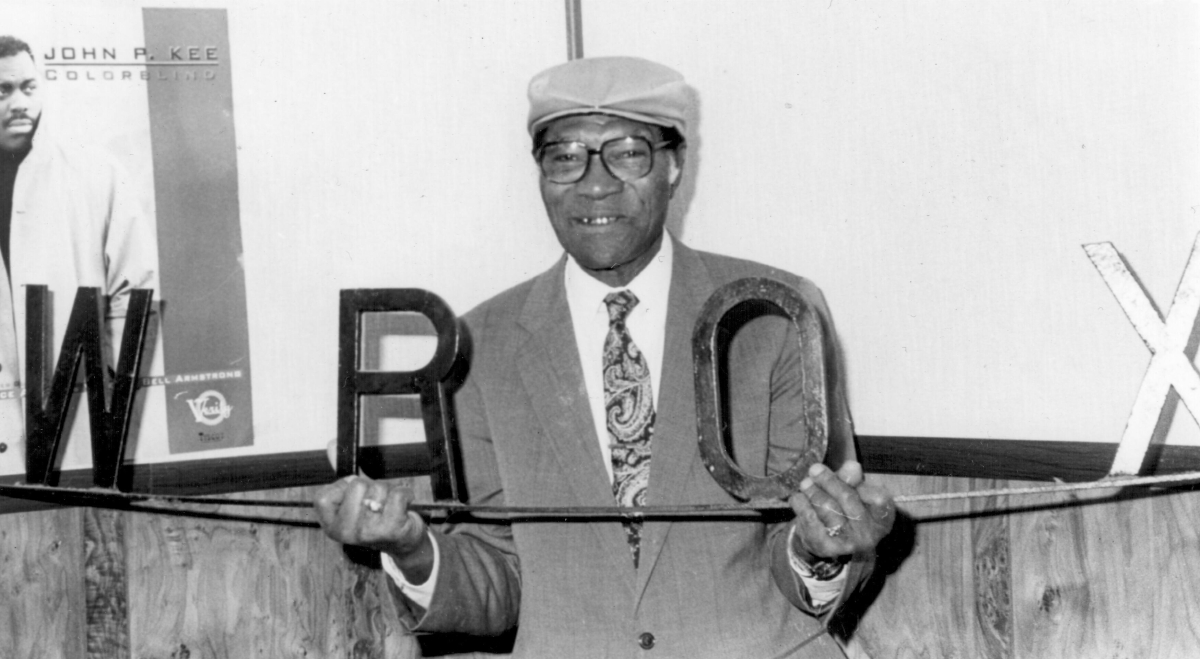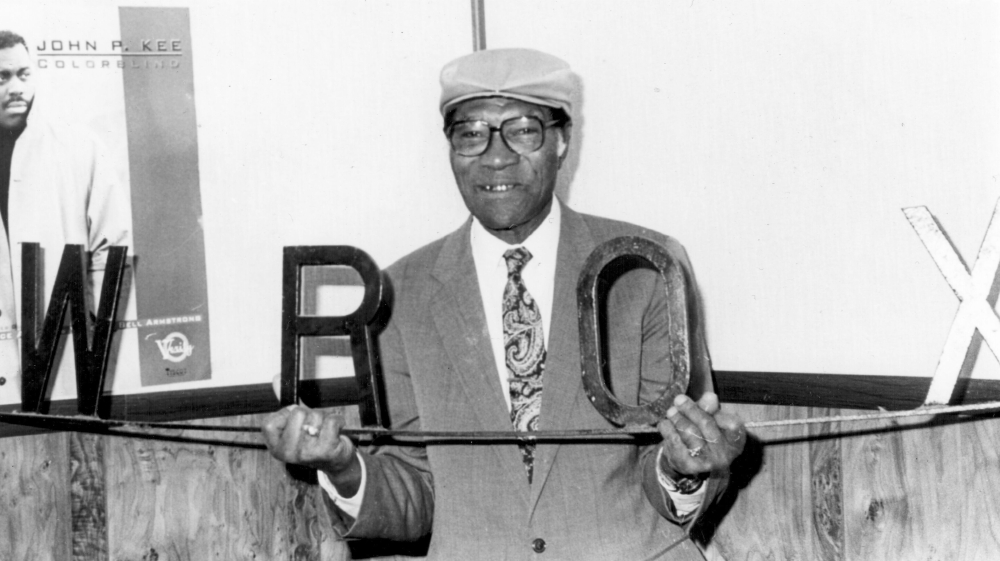It was so good to hear a black deejay on the radio. We only had two stations, WROX and later, WDIA. We tried to listen to Early Wright to support Clarksdale.
—Delores Luster, Retired teacher, Clarksdale
As a young child, I first came to know Mr. Early Wright as the older man who often visited my childhood church. He was our pastor’s, Reverend Woods’ friend, and he always seemed to be working with the sound, headphones glued to his ears or brushing by with his hand out for someone to shake. He wore shirts so starched they might stand up on their own and always cufflinks. His thick hair was gray at the temples and perfectly-lined. Despite his immaculate appearance, he had a ready smile and an easy, humble demeanor. I can distinctly remember being told: “That’s the Soul Man there.” It wasn’t until I was older that it all connected in my head that Mr. Wright was the Soul Man, the voice of the blues on WROX, the soundtrack of our drives down Highway 61 from Memphis.
To think of it instantly transports me: rocking along one slivery lane of highway in a Cutlass, squished between cousins. We listened to Mr. Wright spin stories and records, like Sam Cooke, huffing on the chain gang. Or J. Blackfoot, shouting for a taxi. Oh, and the Mississippi Mass Choir, who seemed like they were doing their best to thunder open the gates of heaven with their voices. The Soul Man’s playlist lulled our bad behavior and kept our aunts singing (or praising) too hard to bop our legs; his banter gave us the feeling of being precisely at home. Before I could truly grasp what Mr. Wright meant to our city and its native musical traditions, it was too late to ask him all he knew. A library had burned to the ground.
The Soul Man’s playlist lulled our bad behavior and kept our aunts singing (or praising) too hard to bop our legs; his banter gave us the feeling of being precisely at home.
Born in February 1915 on a plantation in Jefferson, Mississippi, Early Wright once said he “grew up on the hard part of the highway.” He was raised by his mother and her husband; his stepfather would not allow him to attend school. After his family migrated to Missouri, he was able to get more education; however, a move back to Mississippi permanently derailed his formal learning. Wright said had he stayed in Missouri, he would have been a lawyer. In this dimension, labor became his norm; to earn a living, he dug levees, worked in a freight house, and painted. For fun, he and friends would visit small local joints where they listened to the blues played on guitars with no amplifiers. Hard work shaped his character and dealings. In 1937, he relocated to Clarksdale and became a mechanic. He forged a solid reputation, calling himself ‘a fixer but won’t charge you.’ He married Ella Dean, with whom he would build a family.

This photo of Early Wright was taken inside his studio at WROX located on the second floor of the Alcazar Hotel in Clarksdale. Photo by Panny Flautt Mayfield.
The blues is a feeling,’ Wright once said so matter-of-factly that you knew instantly it was true. A man who had known hungry days and juke joint nights would know.
Mr. Wright possessed a particular kind of eloquence, only found in old black men in the South, those whose intelligence had been earned, rather than bestowed. It rose out of hard times, ways made, and optimism that can’t be smothered by oppression. It is a wavy sing-song of words, real and extrapolated, fit for a pulpit, street corner, courtroom, or any other place where people might need convincing. This charisma would lead to him become the first black deejay in the state of Mississippi and perhaps the entire deep South. It was 1947, and Wright was the part-time manager of the Four Star Quartet. He was doing an announcement for the group when he caught the attention of WROX and was offered a job. A deeply-religious man, he agonized over the decision of whether or not to play the blues. In the meantime, the station continued to pursue him and sent others to pursue him as well. After consulting with his preacher, he decided to try it out, and the rest--as they say--is history. His show would become one of the longest continuously-running radio programs in America.
The era of "Soul Man" was new to black folks but we were proud to know that someone who looked and talked like us could be on the radio.
—Canary Whitfield, Retired cook, Clarksdale
It was said that the only way Mr. Wright lost a customer was if they died. What set him apart was his colloquial manner. You could immediately tell he was who he was first and a deejay second. His improvisational delivery and rundown of neighborhood happenings, like funerals and snake alerts (which warned listeners of where snakes had been spotted) resonated deeply within black communities throughout the Delta. At one time, he said he would play three or four records in an hour, and the rest would be commercials, yet his listeners stayed with him. His announcements were peppered with comments like, ‘Can you beat it?’ Or ‘What you know ‘bout that?’ It was like poetry or a cipher, or like he was sitting on your granny’s plastic-covered sofa to tell her about the deals down at the Conerly’s Shoe Store. Wright was proud of his distinctly Southern voice, and he didn’t try to change himself.
It wasn’t until I was older that it all connected in my head that Mr. Wright was the Soul Man, the voice of the blues on WROX, the soundtrack of our drives down Highway 61 from Memphis.

Early Wright being interviewed in 1988 by Kurt Loder of MTV during a highly publicized media event in Clarksdale. Photo by Panny Flautt Mayfield.
His take on current issues were intense but when he didn't know something he would always say, ‘I’m going to leave that alone.'
—Canary Whitfield

Early Wright holding the WROX sign in the Alcazar Hotel. Photo by Panny Flautt Mayfield.
His show would become one of the longest continuously-running radio programs in America.
Wright’s show consisted of two hours of the blues and two hours of gospel. The former he executed as The Soul Man, the latter as Brother Early. He was made famous by hosting the greats of blues and rock and roll on his show. Names like B.B. King, Bobby Blue Bland, Pinetop Perkins, and Charley Pride read like a musical hall of fame. Wright hosted Elvis early on in his career, later complementing the man’s dress and manners. When asked about Elvis and white artists’ appropriation of black music, Wright responded that he felt Elvis had a real respect for the music. Back then WROX was housed in Clarksdale’s Alcazar Hotel; as a child, Ike Turner began frequenting the station, and it became his first steady gig. Wright was proud of the diverse audience his show garnered; he was sought after by larger markets in bigger cities, all of which he turned down. It was and never had been about money or fame.
He was a good friend to my husband and responsible for him being on the radio.
—Annie Woods-Todd, Homemaker, Clarksdale
Despite the clout, Wright remained deeply rooted in the community that supported him, giving them a voice where they had been previously silenced. Reverend Woods was often on his show, as well as Mrs. Earnestine, who was my aunt’s best friend’s mother. His actions were progressive, his word authentic. Those who spoke about him for the sake of this article, spoke with pride and admiration; he was a good man, they said. He was a symbol of the changing times.
I enjoy you enjoying them (the blues). —Early Wright
Wright believed these things to be self-evident concerning the blues: they had excellent powers, and they were ‘one of the most truthfullest things ever made.’ The blues, he contended, will wake you up if you were blind to how you were treating others. They illustrated the dangers of neglecting your lover and advised you on ways of doing better. As for the place of the deejay within it all-he was a sort of therapist, who spun the right records to help you solve your problems. ‘The blues is a feeling,’ Wright once said so matter-of-factly that you knew instantly it was true. A man who had known hungry days and juke joint nights would know.
I don’t let it blow my head up (the fame). —Early Wright
Wright considered it an honor to be considered a prominent figure in the Mississippi blues, but foremost to him was his family. He spoke most passionately about his daughters. He loved his children dearly, and his every move was to ensure they never had to work as hard as he had. Unfortunately, tragedy struck. He lost one daughter at the tender age of 29, and in 1998, he lost the other, who was just 41. I think it broke his heart; he retired the same year and died in 1999. That was my sophomore year in college, well before I knew how proud the legacy I could lay claim to was.
When the Sunflower River Blues Festival began in Clarksdale in 1988, Wright was considered its symbolic leader. The fest brought blues performers and lovers from all over the world to perform and partake in the blues in its birthplace, a dream come true for a musical pioneer. In 1991, the Early Wright Blues Heritage Award was established in order to honor a non-musician whose outstanding work and dedication illustrates Early Wright’s commitment to “preserve, promote, perpetuate, and document the blues in its birthplace.” Wright was its first honoree.
While preparing this piece, I found one of Wright’s few available interviews on NPR’s American Routes program. During it, the host said that death had silenced Early Wright’s voice. I immediately balked at how removed the host was from both the Delta and the blues, but then I asked, how could he not be? He was a consumer, not a member; the blues was not his, nor was Early Wright. For, as long as the blues are played, and as long as there are those who know of those who knew, Early Wright will never be silenced.

